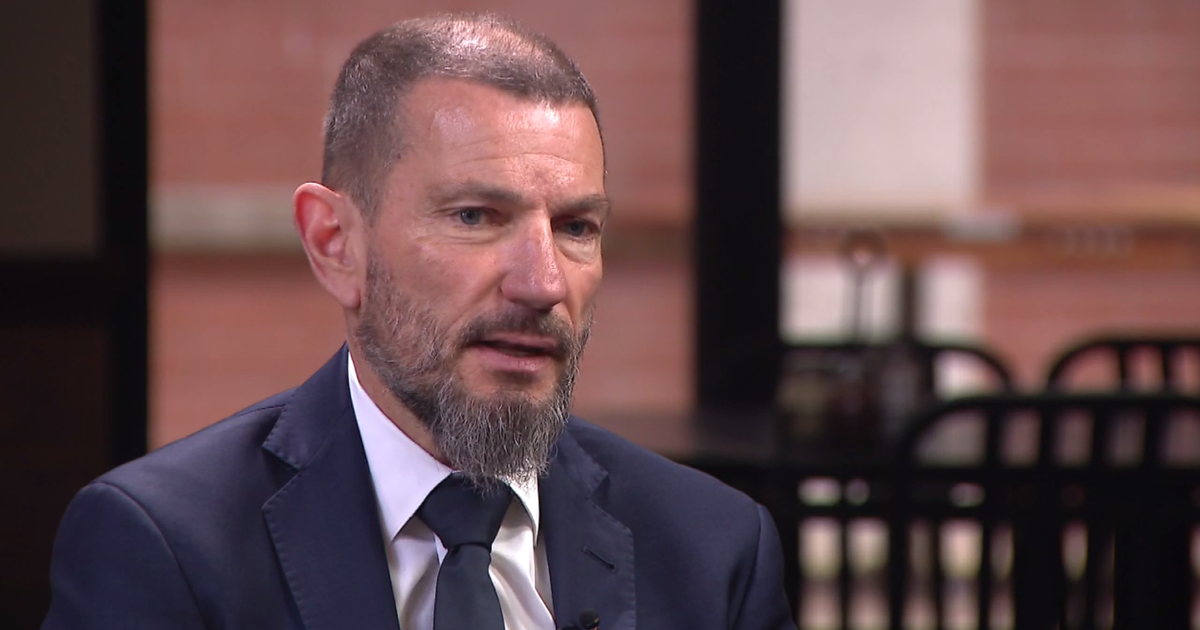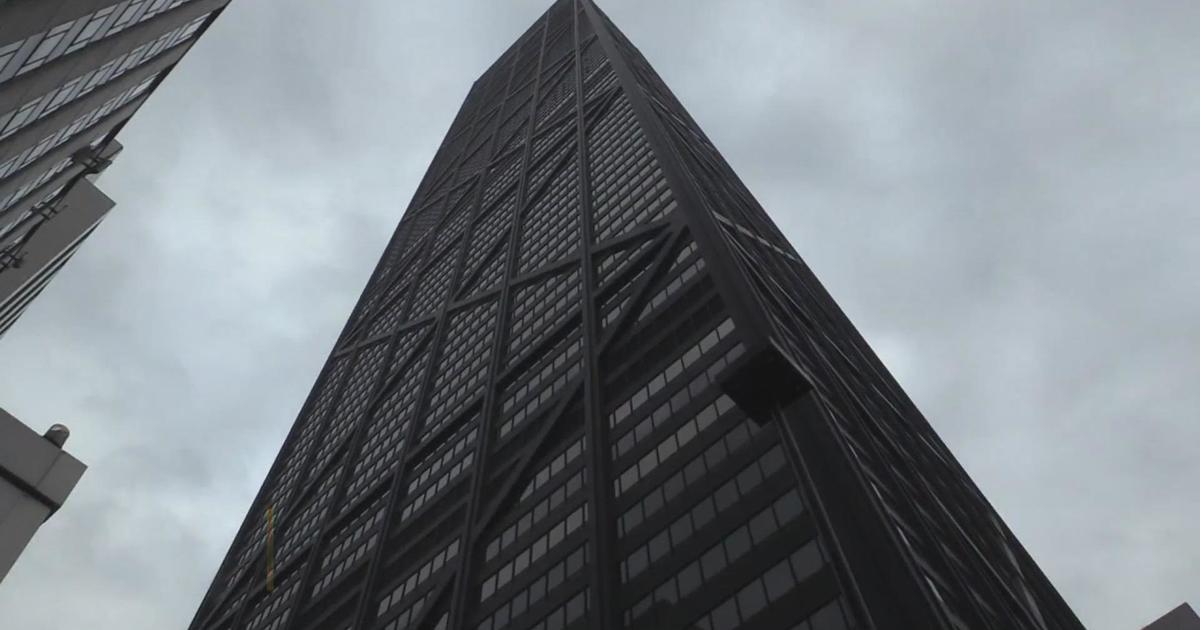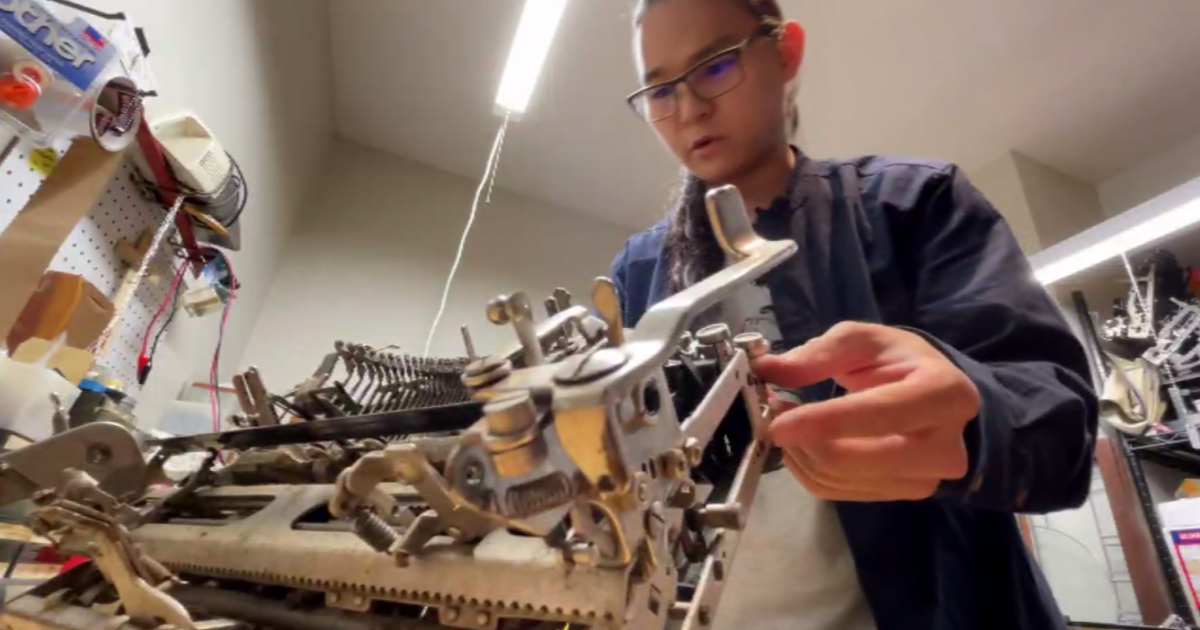Emanuel: City Can't Afford Old Ways Of Doing Business
Updated 10/12/11 - 5:42 p.m.
CHICAGO (CBS) -- "We can start shaping our city's future or let it shape us," Mayor Rahm Emanuel said as he unveiled a budget that will close three police stations, double water rates, and raise several other fees.
The mayor also called for a program to replace the aging water pipes under the city, in a project that will create thousands of jobs.
Mayor Emanuel said the budget must be "honest," and "one that focuses on current needs while investing in the future."
His budget address won praise from aldermen for being up front about the city's financial problems.
"For the first time in 10 years we've had an honest discussion about our budget situation," Ald. Brendan Reilly (42nd) said after Emanuel's budget speech.
The mayor pulled no punches in laying out a plan of shared sacrifice.
"To everyone who has not paid their fair share: Ladies and gentlemen -- the free ride is over," Emanuel said in his budget speech.
He singled out non-profits that used to get free water, but also announced an increase that will boost average water bills from $400 to $800 a year over the next four years.
"Even with this proposed plan, Chicago rates will remain among the cheapest in the Great Lakes region," he said.
LISTEN: WBBM Newsradio Political Editor Craig Dellimore reports
Podcast
LISTEN: WBBM Newsradio Political Editor Craig Dellimore has reaction from aldermen
Podcast
The budget proposal does not include sales or property tax hikes to plug the $635 million deficit, and will cut the employee head tax that has been long maligned by business owners, so as to keep jobs and business in the city.
"With the global demand for jobs, time for debate is over," Emanuel said. "No longer will Chicago tax the creation of jobs."
But the budget will call for higher hotel taxes, a "congestion premium" on parking at downtown garages during rush hour, doubling water fees and raising the price of a city sticker for SUVs and trucks from $120 to $135.
The mayor also confirmed that the budget will include the closure of three police stations.
Emanuel pointed out that as part of his campaign promise to place more police officers on the street, every district received additional officers, and the districts with the most crime received the largest increases, "as it should be."
But the Police Department can no longer be a sacred cow that is immune from city budget considerations, Emanuel said.
"For decades, our public safety functions were walled off from budget cuts and other changes that would have made them more effective," Emanuel said. "The reason was politics, pure and simple."
Previous reports indicated that the police stations that would close are the:
• Wood District, 937 N. Wood St.;
• Belmont District, 2452 W. Belmont Ave.;
• and Prairie District, 300 E. 29th St.
Emanuel only referenced the Belmont District in his address, pointing out that it is the station that serves his neighborhood.
"If I didn't think this would improve public safety, I wouldn't do it," he said.
But combining 25 districts into 22 – and moving officers from old police stations into newer facilities nearby, is worth the savings, Emanuel said, because "after all, it's beat officers who fight crime, not bureaucrats and buildings."
The biggest saving comes from eliminating previously budgeted but unfilled police positions. More than 1,300 vacant police positions are being eliminated to save $82 million.
But Emanuel did promise to hire about 100 new officers next year.
Chicago Fraternal Order of Police President Mike Shields, on his way to a meeting with Police Supt. Garry McCarthy, said he planned to say that "There are not enough Chicago police officers. It impacts police officers, but it also impacts the safety on the streets of Chicago."
Given that the department is also losing 500 officers through retirement, Ald. Ed Burke (14th), a former police officer and powerful chairman of the City Council Finance Commmittee, said he has "great confidence" in McCarthy to keep the city safe.
"If he believes he can police the streets and keep the citizens safe, with that number of personnel, then so be it," Burke said.
In addition, the Police and Fire departments will operate out of a combined headquarters, and will begin working jointly for several public safety functions, including terrorism, bomb threats, and arson. Chicago will be the first large city to combine the Police and Fire departments into one public safety unit, Emanuel said.
Further, the five police investigative areas and detective units will be cut to three – north, central and south, Emanuel said.
Some aldermen questioned Emanuel's plan for higher hotel and parking taxes and other revenue moves, but most said Emanuel's first budget plan hits the city's problems head-on.
"I think that the mayor has put forth a lot of ideas, opened it up to the public for ideas and to the aldermen and I think he's done the best that he can with it," Ald. Walter Burnett (27th) said.
But Ald. Roberto Maldonado (26th) wasn't buying it when officials told him his ward would have more police protection after the Wood District on the West Side closes down.
"You might have more police officers coming out of that district, but you're also going to have a much larger geography to serve," Maldonado said.
City Clerk Susana Mendoza – whose office handles the sale of city stickers – came out against the increase in sticker fees for SUVs from $120 to $135, pointing out that owners are SUVs are already charged more than owners of other vehicles. Most passenger vehicle owners pay $75 for a city sticker.
"Let's go after the scofflaws, let's go after those people who are not paying their fair share and let's ask them to pay more," she said. "What's more lucrative for us, a $15 increase in an SUV fee or an $80 dollar increase in a ticket for those who didn't purchase their sticker. I think the math speaks for itself."
Meanwhile, fees and fines will rise primarily for those who "put communities at risk," Emanuel said. Fines for drunken driving will double, as will fines for transporting an illegal firearm. Fines for carrying an illegal firearm near a school or park will triple.
In addition, owners of vacant or overgrown lots – whether individuals or banks – will have to pay to clean them up.
It will also cost more to park downtown under the new budget, at least during the week. A downtown congestion premium of $2 per day will be assessed on weekdays only, and will go toward upgrades at existing CTA 'L' stops, a new rapid transit bus station, and bike lanes.
And drivers of small or standard cars will not see an increase in their city sticker fee of $75, those who drive heavier cars or trucks will see a hike from $120 to $135. That money will go toward filling 160,000 potholes in 2012, Emanuel said.
The increase in water rates is mandated, Emanuel said, because 1,000 miles of water pipes that run under the city are 100 years old or older, and replacement cannot be delayed.
Emanuel said he does not support privatization of the Department of Water Management, as some have suggested, but "that does not mean we are off the hook."
When it comes to outdated and decaying water pipes, Emanuel said, "We are already paying the price in flooded streets, flooded basements, big sinkholes, broken axles, flat tires, and even sunken cars."
The increase in water bills will still keep rates lower in Chicago than most other cities on the Great Lakes, and the project to upgrade the city's water infrastructure will generate 18,000 good-paying jobs in the coming decade, Emanuel said.
The mayor is also asking the city's Internet providers to install broadband conduit while the new water pipes are being installed.
The budget also eliminates free water service for non-profit organizations.
Changes are also coming to the city's garbage collection system. The mayor has already opened the system up to "competitive bidding," in which unionized private employees are now serving some areas of the city, and Department of Streets and Sanitation employees are serving others.
Now, for the sake of efficiency, Emanuel says the ward-based garbage collection system now in effect will be replaced with a grid-based system.
"No person designing a garbage collection system from scratch would base it on a political map. We've always done it that way because we could afford to. Fed Ex and UPS don't do it that way," he said. "But we can no longer afford to."
Most aldermen seemed willing to let the Mayor call the shots, but not when it came to taking garbage collection away from their ward bosses.
The mayor wants to switch to a grid system for trash pickup, which aldermen have resisted for years because a ward-by-ward system gives them more direct control over garbage collection in their own wards.
"I stand ready to work with you to address your concerns, while still reforming the system," Emanuel told aldermen in his speech. "But we cannot cling to a garbage system based on politics rather than cost."
Cuts will also be coming to the city's workforce. The budget slashes 510 middle or senior managers for a savings of $34 million, and cuts 776 vacant positions.
Libraries will also be affected. Branch libraries will have their morning hours cut on Mondays and Fridays for a savings of $7 million, but will remain open six days a week.
The Harold Washington Library Center and the Sulzer and Woodson regional libraries on the North and South sides, respectively, will maintain their seven-day schedules.
The budget also anticipates $20 million savings from the city's employee wellness program, and $15 million from workers' compensation reform.
While not mentioning his predecessor, Mayor Richard M. Daley, by name, Emanuel said a change from the city's past fiscal policies was needed. He pointed out that the city had been in the red for its past 10 budgets.
"We're going to start saving for Chicago's future again instead of selling it short," he said.
Aldermen will begin holding hearings next week with city department heads to go over each individual department's budget plan before voting on a final budget before the end of the year.



